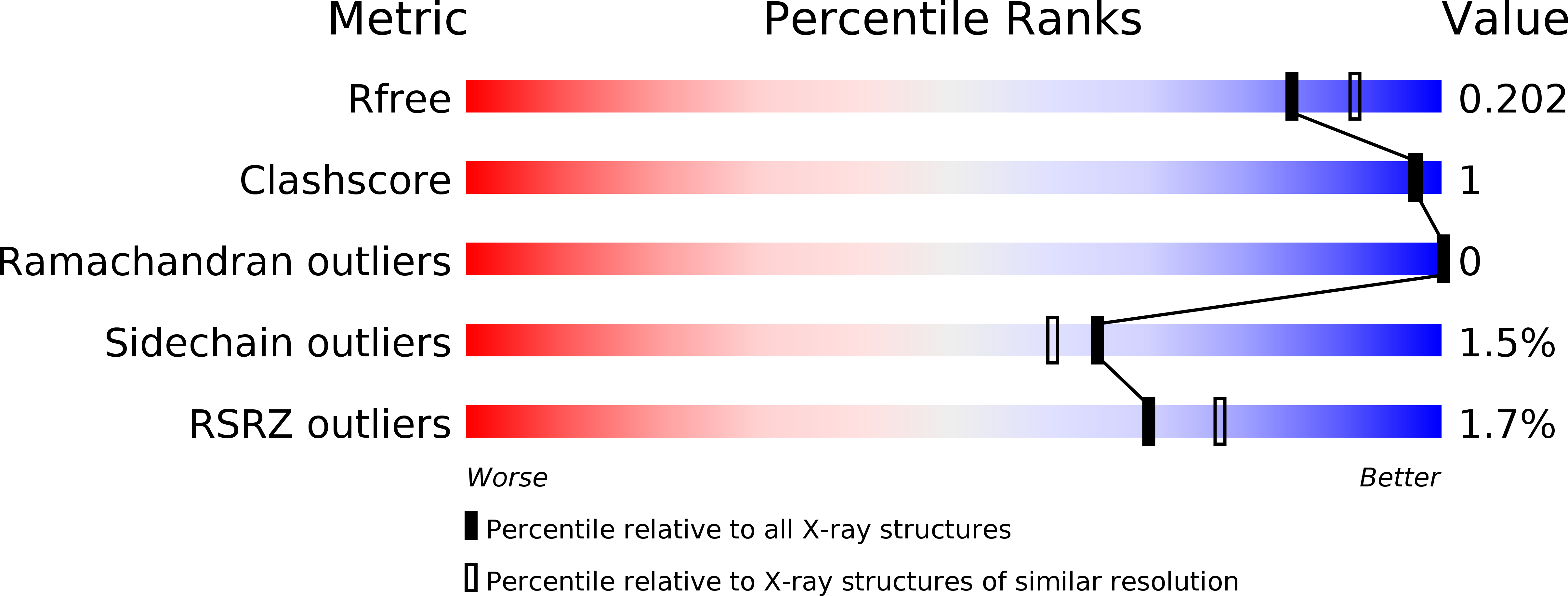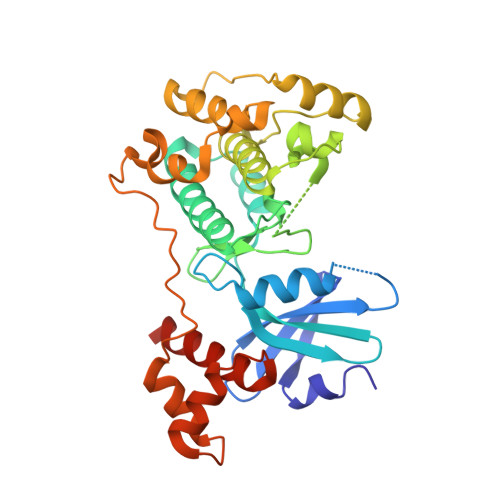Toward the Validation of Maternal Embryonic Leucine Zipper Kinase: Discovery, Optimization of Highly Potent and Selective Inhibitors, and Preliminary Biology Insight.
Toure, B.B., Giraldes, J., Smith, T., Sprague, E.R., Wang, Y., Mathieu, S., Chen, Z., Mishina, Y., Feng, Y., Yan-Neale, Y., Shakya, S., Chen, D., Meyer, M., Puleo, D., Brazell, J.T., Straub, C., Sage, D., Wright, K., Yuan, Y., Chen, X., Duca, J., Kim, S., Tian, L., Martin, E., Hurov, K., Shao, W.(2016) J Med Chem 59: 4711-4723
- PubMed: 27187609
- DOI: https://doi.org/10.1021/acs.jmedchem.6b00052
- Primary Citation of Related Structures:
5IH8, 5IH9, 5IHA, 5IHC - PubMed Abstract:
MELK kinase has been implicated in playing an important role in tumorigenesis. Our previous studies suggested that MELK is involved in the regulation of cell cycle and its genetic depletion leads to growth inhibition in a subset of high MELK-expressing basal-like breast cancer cell lines. Herein we describe the discovery and optimization of novel MELK inhibitors 8a and 8b that recapitulate the cellular effects observed by short hairpin ribonucleic acid (shRNA)-mediated MELK knockdown in cellular models. We also discovered a novel fluorine-induced hydrophobic collapse that locked the ligand in its bioactive conformation and led to a 20-fold gain in potency. These novel pharmacological inhibitors achieved high exposure in vivo and were well tolerated, which may allow further in vivo evaluation.
Organizational Affiliation:
Novartis Institutes for Biomedical Research , 250 Massachusetts Avenue, Cambridge, Massachusetts 02139, United States.















